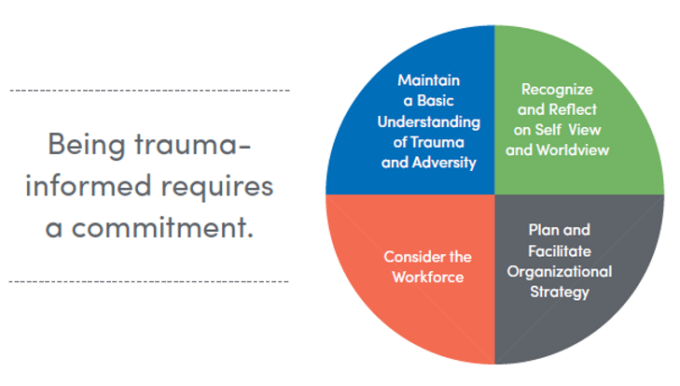Building Resilience and Trust Through Trauma-Informed Care
Trauma-informed care (TIC) is a holistic approach that prioritizes the experiences, unique needs, and well-being of individuals who have experienced trauma. It not only supports healing but also prevents further harm or retraumatization. This approach is particularly beneficial in cases of injury, such as concussion, where understanding the physical and emotional impact is crucial. TIC fosters healthier relationships, enhances trust, and promotes effective recovery, including the implementation of appropriate concussion treatment protocols when necessary. It is an essential paradigm for recognizing the far-reaching impacts of trauma on mental, emotional, and physical health. By integrating TIC principles into policies, interactions, and relationships, organizations foster a culture of resilience, empowerment, and safety. This approach supports staff and clients, enabling them to work together towards meaningful wellness outcomes that last.
Understanding Trauma-Informed Care
Trauma-informed care is a fundamental shift in the way care is delivered, moving away from the traditional approach of asking, “What’s wrong with you?” and instead centering the question, “What happened to you?” This shift acknowledges that trauma is a widespread, often invisible part of the human experience that can dramatically color one’s health, relationships, and daily functioning. Rather than merely addressing surface symptoms or behaviors, TIC seeks to understand and heal underlying root causes. This holistic understanding offers safer, more compassionate care that proactively supports every individual’s unique path to recovery. To make this approach effective, every member of an organization—from leadership to front-line staff—is trained to recognize signs of trauma and respond with empathy and adaptability. Changes in communication, physical environments, and organizational practices all work together to minimize the risk of inadvertently triggering trauma responses.
Core Principles of TIC
Trauma-informed care (TIC) is a holistic approach that emphasizes the importance of safety, trustworthiness, transparency, peer support, collaboration, empowerment, and cultural understanding. It focuses on creating environments where physical and emotional safety are prioritized, ensuring that clients and staff feel secure and respected. Trust is fostered through clear communication and commitments, which in turn promote a supportive atmosphere. Peer support encourages healing by promoting hope and understanding among individuals who have experienced similar experiences. Collaboration breaks down barriers between staff and clients, promoting shared decision-making and respecting every voice. Empowerment is achieved through self-advocacy and full participation in care decisions, empowering individuals to become active agents in their recovery journey. Lastly, TIC respects cultural, historical, and gender issues, reducing bias and addressing structural inequalities by tailoring services to individual backgrounds and experiences.
Improved Mental Health Outcomes
Research and lived experience both demonstrate that trauma-informed care can lead to significantly better mental health outcomes. Instead of merely managing symptoms, TIC works to address and heal the wounds beneath anxiety, depression, PTSD, and other related conditions. When clients feel both seen and safe, engagement with treatment increases and adherence improves, which in turn drives genuine, sustainable healing. Effective trauma-informed interventions foster the development of healthy coping skills and resilience, enabling clients to transition from merely surviving to thriving and achieving fulfillment. Moreover, TIC helps diminish the stigma and isolation frequently linked to mental health issues, replacing shame with understanding and hope for recovery.
Enhanced Organizational Culture
Adopting a trauma-informed approach transforms an organization from the inside out. Staff are not only trained to recognize and respond to trauma but are also encouraged to bring heightened empathy, self-awareness, and supportive engagement into every interaction. This shared vision of trust, safety, and authentic collaboration increases staff morale, cultivates a sense of shared purpose, and boosts retention by making people feel valued and cared for in their work. Beyond individual interactions, a TIC-focused organization is unified by the values of openness, respect, and compassion, extending from leadership to every team member. This inclusive atmosphere provides fertile ground for innovation, ongoing learning, and collective growth, enabling organizations to adapt and thrive in dynamic and diverse environments.
Reduced Staff Burnout
Burnout remains one of the biggest challenges in care settings, yet trauma-informed care offers powerful solutions grounded in awareness and support. By teaching staff to recognize their stress and secondary trauma and implementing strong programs of peer support, as outlined by the Substance Abuse and Mental Health Services Administration (SAMHSA), organizations are better able to protect, nurture, and sustain their workforce. When staff feel acknowledged, supported, and equipped to manage the emotional burden of their work, burnout is dramatically reduced. Opportunities for professional development, self-care, and meaningful feedback allow teams to remain healthy, resilient, and committed to their mission of service.
Strengthened Client-Provider Relationships
Strong, positive relationships between clients and providers are the cornerstone of effective care. Trauma-informed care deepens these connections by training providers to actively listen to clients, validate each client’s emotions, and maintain an open, judgment-free dialogue. This compassionate communication reassures clients that their experiences and voices matter, making it easier for them to trust, engage, and fully participate in their healing and recovery. Mutual respect, shared goals, and a sense of partnership in decision-making lead to greater client satisfaction, better wellness outcomes, and long-lasting positive change. Above all, these relationships help break the cycle of trauma by providing a consistent sense of safety, advocacy, and genuine care in every interaction.
Conclusion
Trauma-informed care holds transformative potential for cultivating more compassionate, equitable, and effective systems of wellness and support. By consistently centering safety, trust, empowerment, and authentic collaboration, organizations unlock healing and resilience for both individuals and teams. The wide-ranging benefits—ranging from improved mental health outcomes to a healthier, more engaged workforce—underscore how TIC is not just a best practice but a necessity for positive, systemic change. For those ready to embark on this journey, integrating TIC principles and comprehensive concussion treatment from reputable providers sets the stage for a healthier future and lasting transformation.







